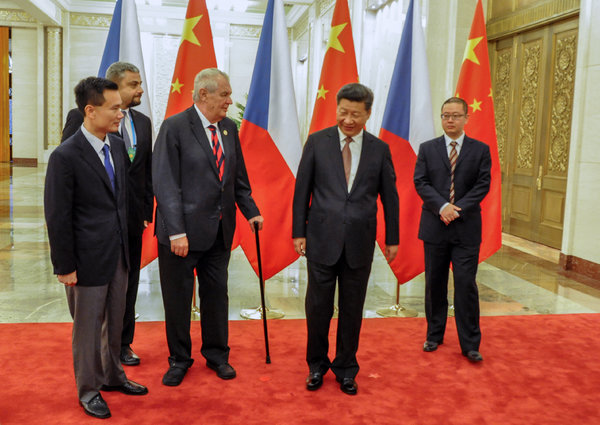News Analysis |
On this weekend, much of the world’s attention at the Group of 20 Economic Summit will be on President Trump’s first meeting with his Russian counterpart, Vladimir V. Putin.But the leader of the world’s other superpower, Xi Jinping of China, will also be in Hamburg, Germany, ready to slip quietly into the widening gap between Mr. Trump and longtime European allies and to position Beijing as the globe’s newest and biggest defender of a multilateral, rules-based system.
Mr. Xi who is currently in Germany, being hosted by Chancellor Angela Merkel, who has made no secret of her differences with Mr. Trump.
Read more: Trump Putin meeting: what hurdles will they have to address?
President Trump is now widely known as a conservative leader who has, since taking office, made various policy decisions which are in contradiction to the previous administrations. His hard line stance on important policy matters have coerced many European leaders to view him unfavorably.
So China will take a more watchful role in Hamburg, eager to get along with everyone, but especially the Europeans.
China favors regional hegemonies rather than American hyperpower and sees a world of regions, where China, Russia, and Europe dominate their respective areas.While trying to be dominant in East Asia, China has no interest in ruffling Russia’s feathers, especially with Mr. Putin in an election year and Russia as a permanent member of the United Nations Security Council.
Read more: Are Russia and China Creating a New World Order in Eurasia?
So China will take a more watchful role in Hamburg, eager to get along with everyone, but especially the Europeans. China sees it as a lucrative precinct to expand its economic power.
China’s soft power
China has always acted rationally. It seeks to use its economy to make inroads in regions, unlike US or Russia, which relies on hard power to pursue their interests.
After a short-lived honeymoon, the Beijing and Washington are back at loggerheads with the latter being miffed at the former’s incursions in the South China Sea.
The relationship between European leaders and USA has deteriorated under President Trump. This has provided China with an opportunity to enhance cooperation with Western Europe which has remained under US influence for decades.
Read more: The South China Sea heats up as US and China lock…
The US seems to be locked in an effort to encircle China by forging a strategic partnership with New Delhi, increasing its military presence in the South China Sea and by selling arms to Taiwan.After a short-lived honeymoon, the Beijing and Washington are back at loggerheads with the latter being miffed at the former’s incursions in the South China Sea.China is now striving to steer out of this encirclement by establishing ties with European, African and South American countries.
According to China’s Ministry of Commerce, China invested over 2.9 billion U.S. dollars in Germany in 2016, a 258.6-percent increase year on year. In the same year, Germany invested over 2.7 billion dollars in 392 new projects in China.
German Chancellor Angela Merkel, who is now labeled as the leader of the free world by many, sees China as the potential partner. The two countries have signed various economic pacts which have enhanced the relationship between Berlin and Beijing.During Xi’s ongoing state visit to Germany, both leaders have chalked out a scaffold, set new targets and mapped out new paths for the future development of the China-Germany comprehensive strategic partnership.
Read more: Angela Merkel’s warning: Will the US & Europe grow apart under…
Ties between the two countries have gained strength over time.German Chancellor Angela Merkel has visited China 10 times during her term. During Xi’s visit to Germany in 2014, he and Merkel agreed on a comprehensive strategic partnership, pointing the direction for the development of bilateral ties in a new era.According to China’s Ministry of Commerce, China invested over 2.9 billion U.S. dollars in Germany in 2016, a 258.6-percent increase year on year. In the same year, Germany invested over 2.7 billion dollars in 392 new projects in China.
The Chinese see the European Union as “an essential partner for the kind of multilateral, globalized world China wants to see, where each region looks after itself and comes together flexibly to meet global challenges, like climate,” Mr. Niblett, director of Chatham House, a research group based in London said.
“The last thing China wants,” he added, “is to get on worse with the E.U. now that the U.S. relationship is so fickle.” China wishes to spread its tentacles and increase its sinews of national power through the power of economics. Its restructured and booming markets attract European buyers, while China can do a world of good by grasping European facilities and expertise. The key to further inroads into Europe would be enhanced trade.














